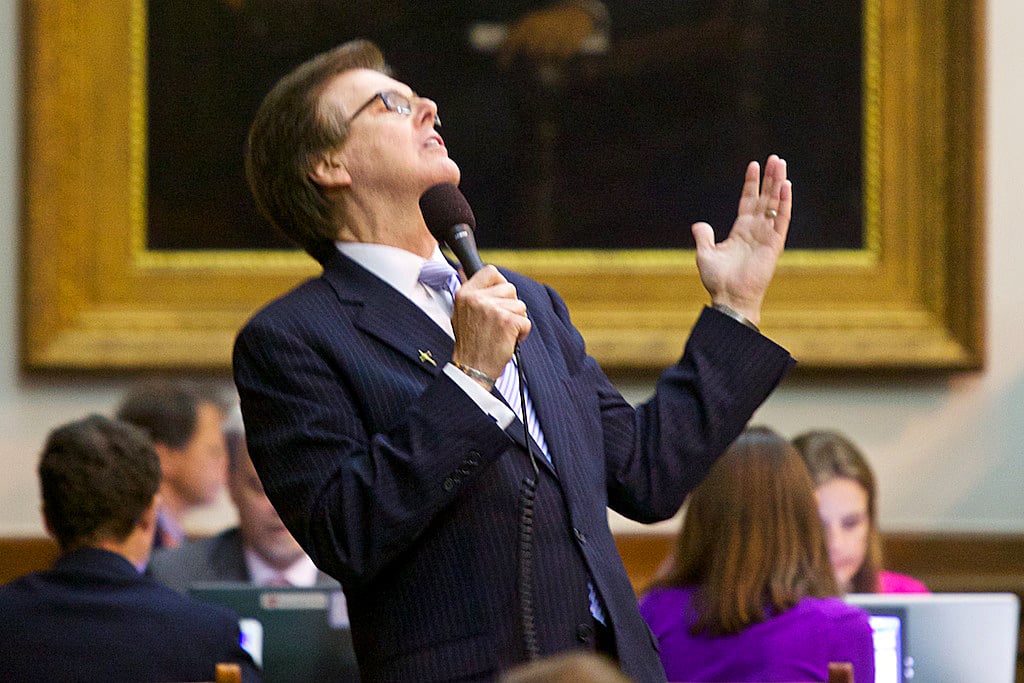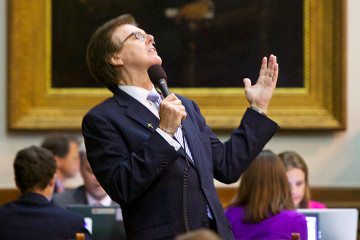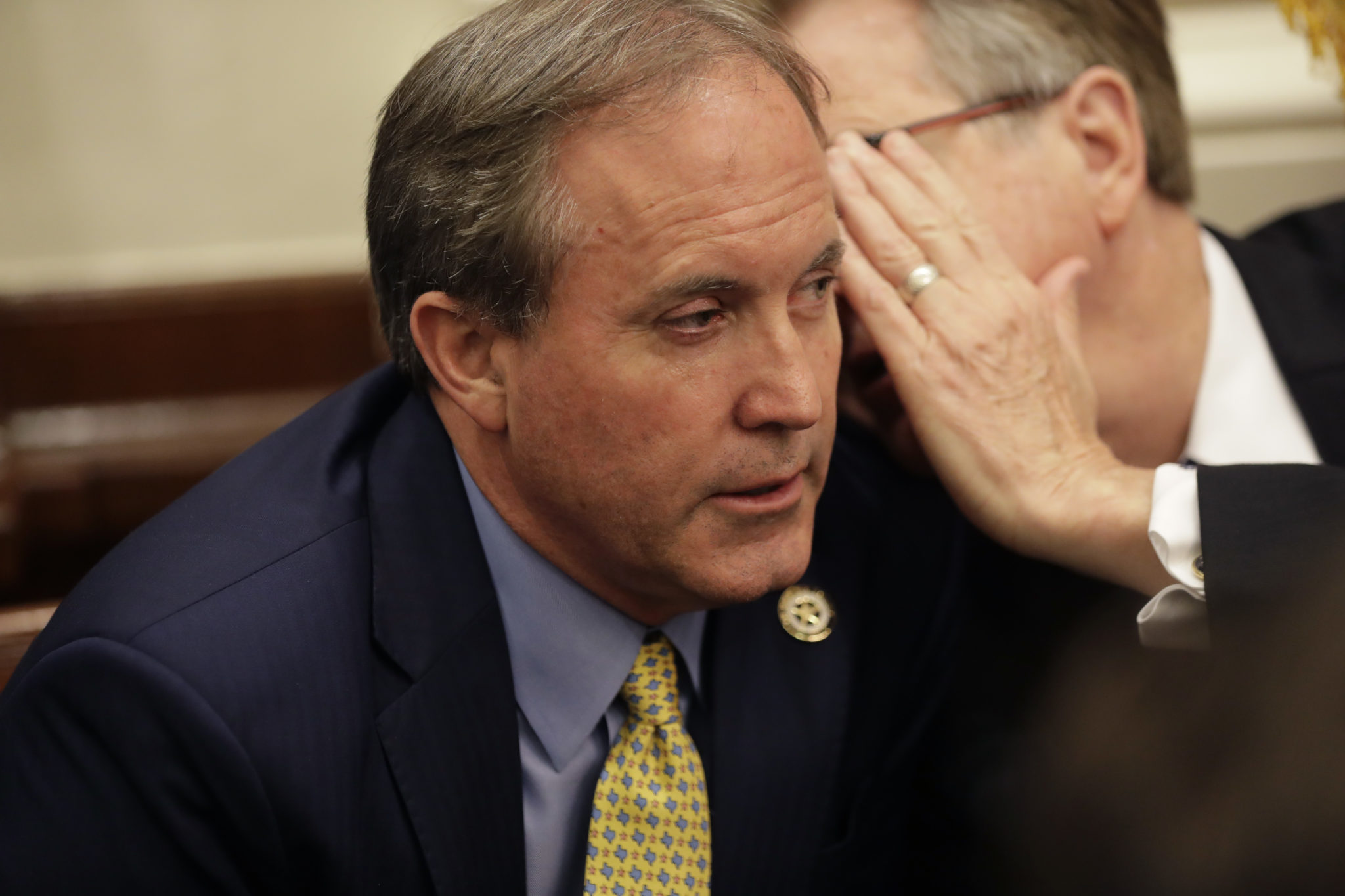
State Leaders on Atrocious Child Welfare System: Don’t Blame Us!
It’s as if state lawmakers owned an amusement park with a roller coaster that chucks a few riders to their deaths every month: We should fix that, they say periodically.

A version of this story ran in the December 2016 issue.
Above: Lieutenant Governor Dan Patrick says the ongoing Child Protective Services crisis is the fault of the agency, not lawmakers who've refused to adequately fund it.

The Texas Legislature oversees a lot of important and meaningful programs — poorly, more often than not — but when dead children come into the picture, the situation feels different. Texas’ terrible school finance system and mismanagement of Medicaid affect millions of people, but those are complicated issues. Few things symbolize a broken state government like the image of a sexually abused child left to linger in a dangerous home because a tip got lost among overworked caseworkers.
The cascading scandals surrounding the Texas Department of Family Protective Services (DFPS) speak for themselves: More than 2,800 children at high risk of being abused or neglected have gone for weeks without being seen by state employees, and 171 kids have died just in the last two years while under state care, sometimes from stomach-churning circumstances. So when it came time for top elected officials to discuss fixes in the child welfare system, Lieutenant Governor Dan Patrick and his chief budget writer, state Senator Jane Nelson, sought to make one thing crystal clear: It’s not their fault.
For years, Child Protective Services (CPS), overseen by DFPS, has been starved of funding and barely functional at best. Caseworkers are paid peanuts for emotionally exhausting work, turnover is extremely high, and employees lack support and direction. And ever since 2004, when legislators forced CPS through a big, messy restructuring and cut the agency’s budget significantly, the legislative hand has been unsteady.
But if the child welfare system is screwed up, Patrick said in a statement, that’s the agency’s fault. “I share Senator Nelson’s frustration with [DFPS],” he said, “and I support her demand that DFPS provide us with immediate answers regarding these children.” He was shocked to learn that the agency “is unable to move through their backlog and protect these at-risk children despite a 85 percent increase in funding since 2006-2007.”
Why use 2006 as a benchmark? Well, that’s right before the agency got its most meaningful budget bump in the last decade. Since then, adjusting for inflation and population growth, the amount of money spent per Texas kid has been about flat. Patrick’s stat is carefully chosen to make DFPS sound wasteful, bloated and out of control. But Texas’ spending on child protection has always been extremely low compared to other states, and it remains so — in the last 20 years, when calculated per minor resident, Texas consistently spent from 40 to 50 percent of the national average on foster care and child welfare.
Patrick’s defensive calculations appear to be an attempt to pre-empt the allocation, next session, of the kind of money DFPS desperately needs. He has his own priorities, including a $1 billion border security package and piddling property tax cuts. His proffered solution is to farm out more of the state’s responsibilities to churches. Hey, charity is cheap.
In December, lawmakers produced an emergency budget package for DFPS, granting salary increases that advocates said had been sought “for two decades.” But it remains unclear how the agency will fare in the coming session. Adequate funding is only the first step, but a necessary one. Nelson acknowledged as much when she shamed DFPS head Hank Whitman, who’s only been on the job for about a year, for not coming to her budget committee with an emergency request for higher CPS salaries. It was an effective bit of Lege theater, an impression of seriousness, and editorial boards around the state praised her for “cracking down” on behalf of children.
But Nelson has been in the Senate for almost as long as I’ve been alive: An infant placed in foster care during her swearing-in could have graduated from college last year. It says something about our meager expectations that her mild anger after all this time is seen as evidence of progress.
It’s as if state lawmakers owned an amusement park with a roller coaster that chucks a few riders to their deaths every month: We should fix that, they say periodically. A decade later, a local TV station starts airing stories on their murder park, and so they leap into action, pledging to fix the ride soon. Then they blame the deaths on their own staff.
But that’s how everything is in Texas. State government these days is mostly about papering over cracks and finding an acceptable level of pain. That’s true with schools, health care, roads and, apparently, child abuse victims. As one budget watcher told me, DFPS “has usually gotten what it needed to keep caseloads from getting much worse, but not enough to make significant improvements in anything.” We should hope that’s not the case this time, but there’s no great reason to expect otherwise.


